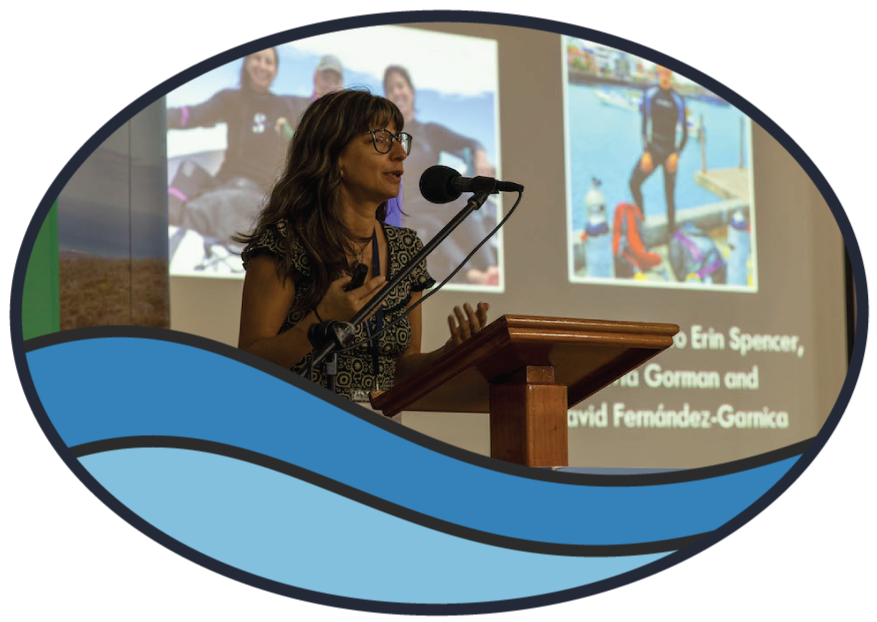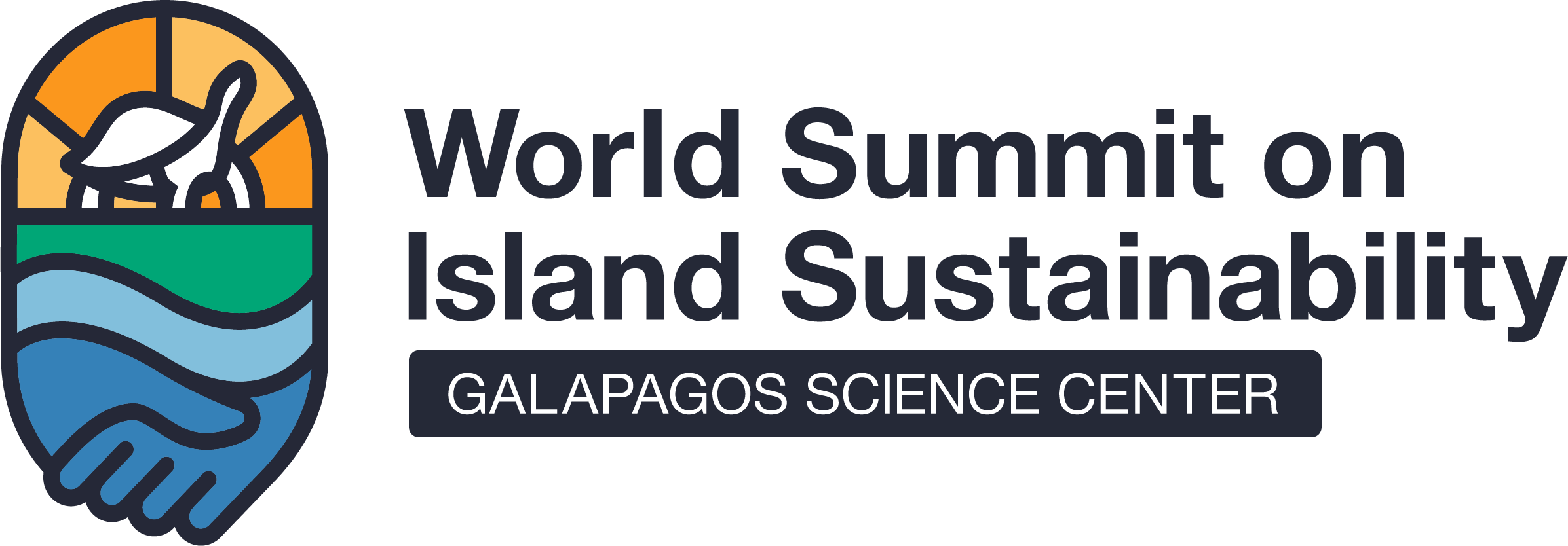Scientist Presentations
Scientist Presentations
The World Summit brought together invited speakers from UNC, USFQ, and international partners to discuss how to ensure healthy island ecosystems for future generations. Please take a look at a variety of presentations below.
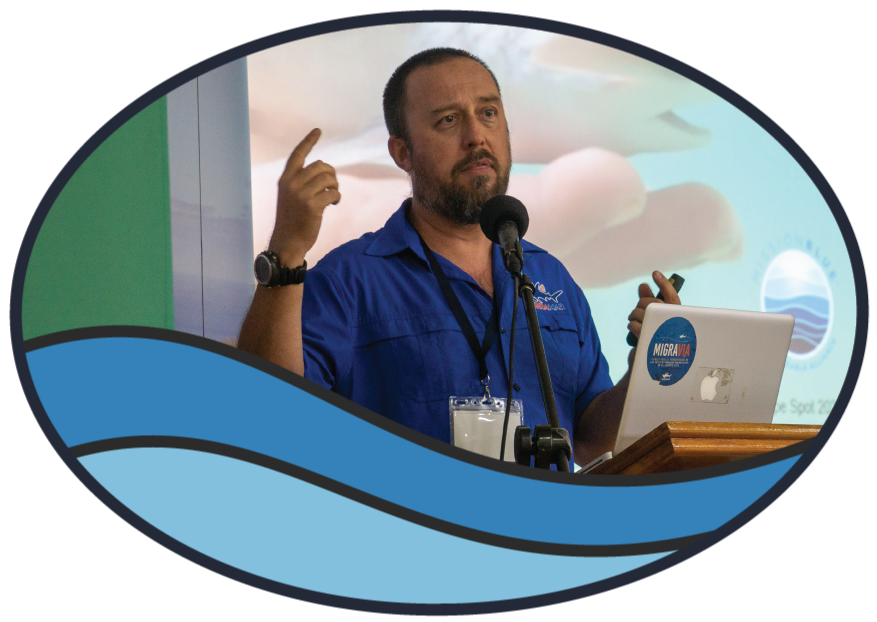
Alex Hearn
University San Francisco de Quito
Alex tells us about the challenges to take the first steps of his investigation within the Galapagos Islands. Part of his job is to persuade the participatory management system on how to sustainably use the island's marine resources.
What is the role of a marine reserve such as Galapagos for migratory species?
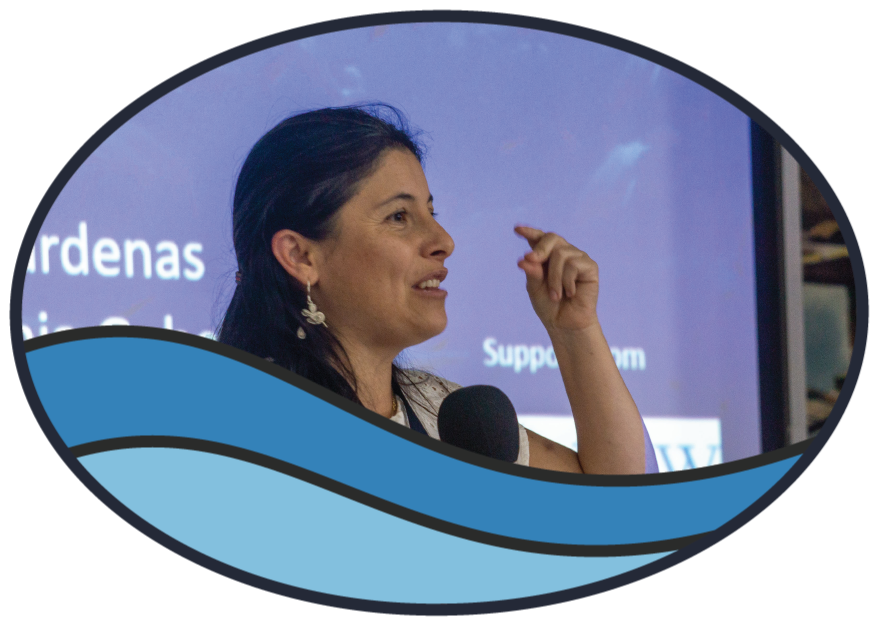
Susana Cárdenas
University San Franciso de Quito
Susana tells us about the benefits of the existence of the marine reserve and how they are related to the sustainability of the archipelago.
Targets and economic benefits from Marine protec

Adrian Marchetti
University of North Carolina at Chapel Hill
Adrian conducts behavioral studies of phytoplankton, they are essentially the ocean's primary producers; they take energy from the sun and create chemical energy dispersed throughout the food chain. In his lecture, Adrian tells us about the importance of understanding the ecological dynamics of microorganisms in the oceans and islands.
The ocean life depends directly or indirectly on the phytoplankton
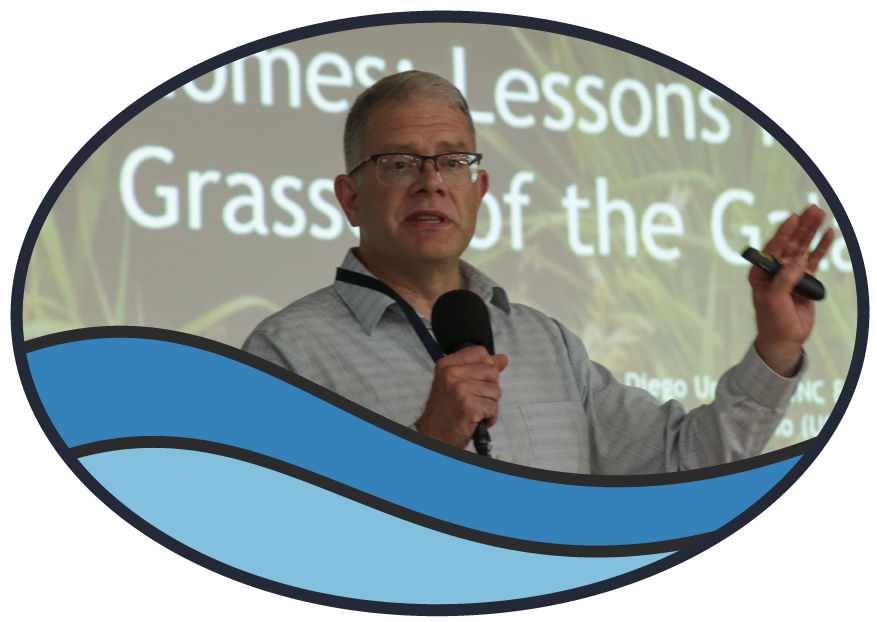
Corbin D. Jones
University of North Carolina at Chapel Hill
Corbin conducts a study looking at how the environment shapes the genomes of Galapagos grasses. In his talk, he tells us about how pastures deal with different climatic and environmental variables, and how understanding their natural history allows us to improve cultivation processes.
Environmental sculpting of genomes: Lessons from the grasses of the Galapagos
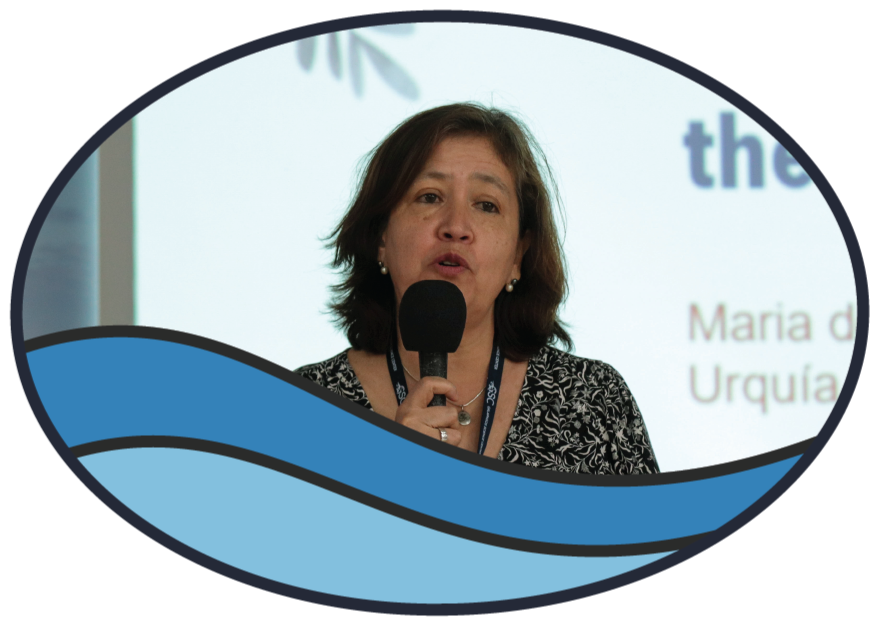
María de Lourdes Torres
University San Franciso de Quito
Unraveling the interactions between endemic and invasive plant species
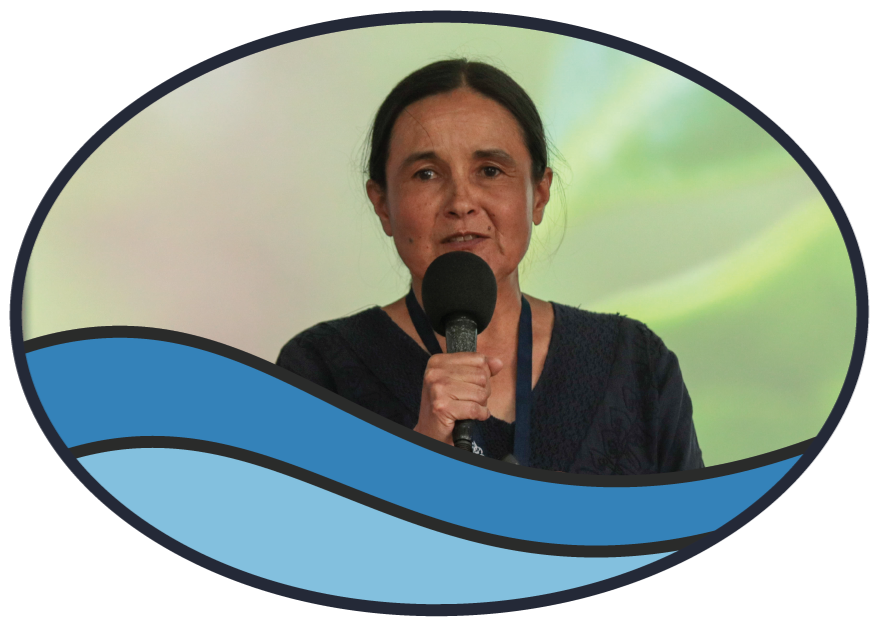
Stella de la Torre
University San Francisco de Quito
Stella carries out her study with the help of Isabel Villarroel; together they study land snails and their ecological role in relation to land use. Galapagos land snails are a very diverse and endemic group that have been severely affected by land use change.
Galapagos land snails and environmental sustainability

Leonardo Zurita
University San Francisco de Quito
Leonardo is part of the Petrel project, his research tries to help preserve this species in the long term. It works directly with farmers who are close to where these seabirds nest. In his talk, Leonardo tells us about the causes that endanger these birds and what can be things that help preserve their habitat.
Galapagos petrels conservation retributing towards a sustainable future in the islands
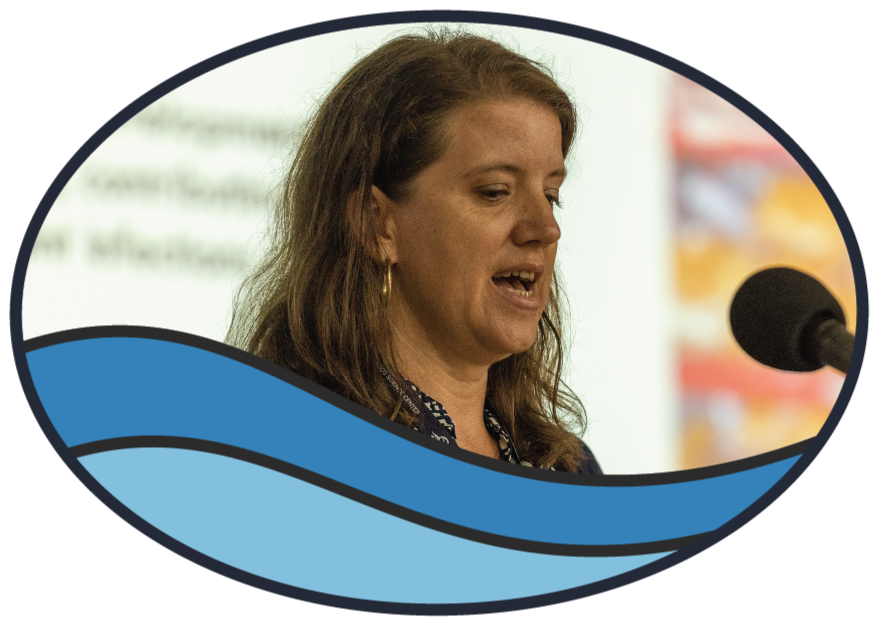
Amanda Thompson
University of North Carolina at Chapel Hill
The health impacts in vulnerable environments such as Galapagos
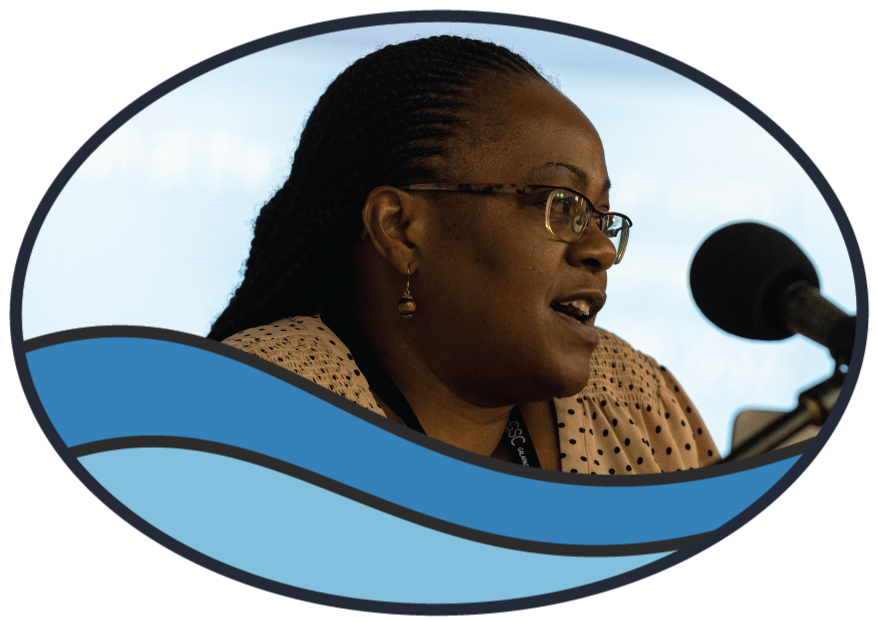
Gina Chowa
University of North Carolina at Chapel Hill
In her lecture, Gina tells us about the first stage of her research on the social situation of the archipelago community. Gina conducts research at the intersection of economic security, workforce development, social protection, and financial inclusion and their impact on marginalized people in the Global South.
Understand the social issues affecting the wellbeing of people of the Galapagos Island
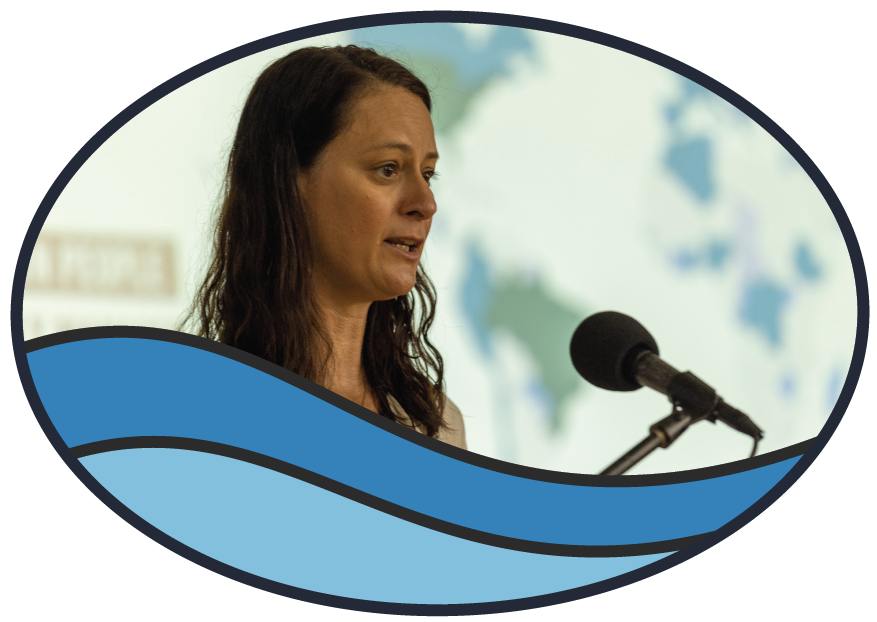
Jill Stewart
University of North Carolina at Chapel Hill
Water quality in the Galapagos Islands: linking human and environmental health
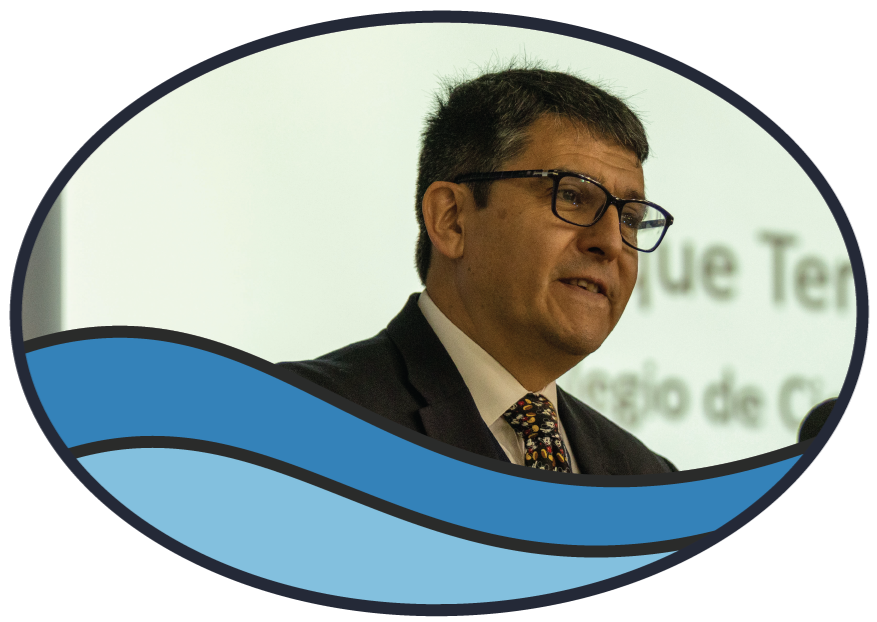
Enrique Terán
University San Franciso de Quito
Enrique conducts his research on human health in the Galapagos Islands. In his talk, we can understand why gastrointestinal diseases are related to water and sanitation facilities.
One Health approach to understanding human health on Galapagos Island
